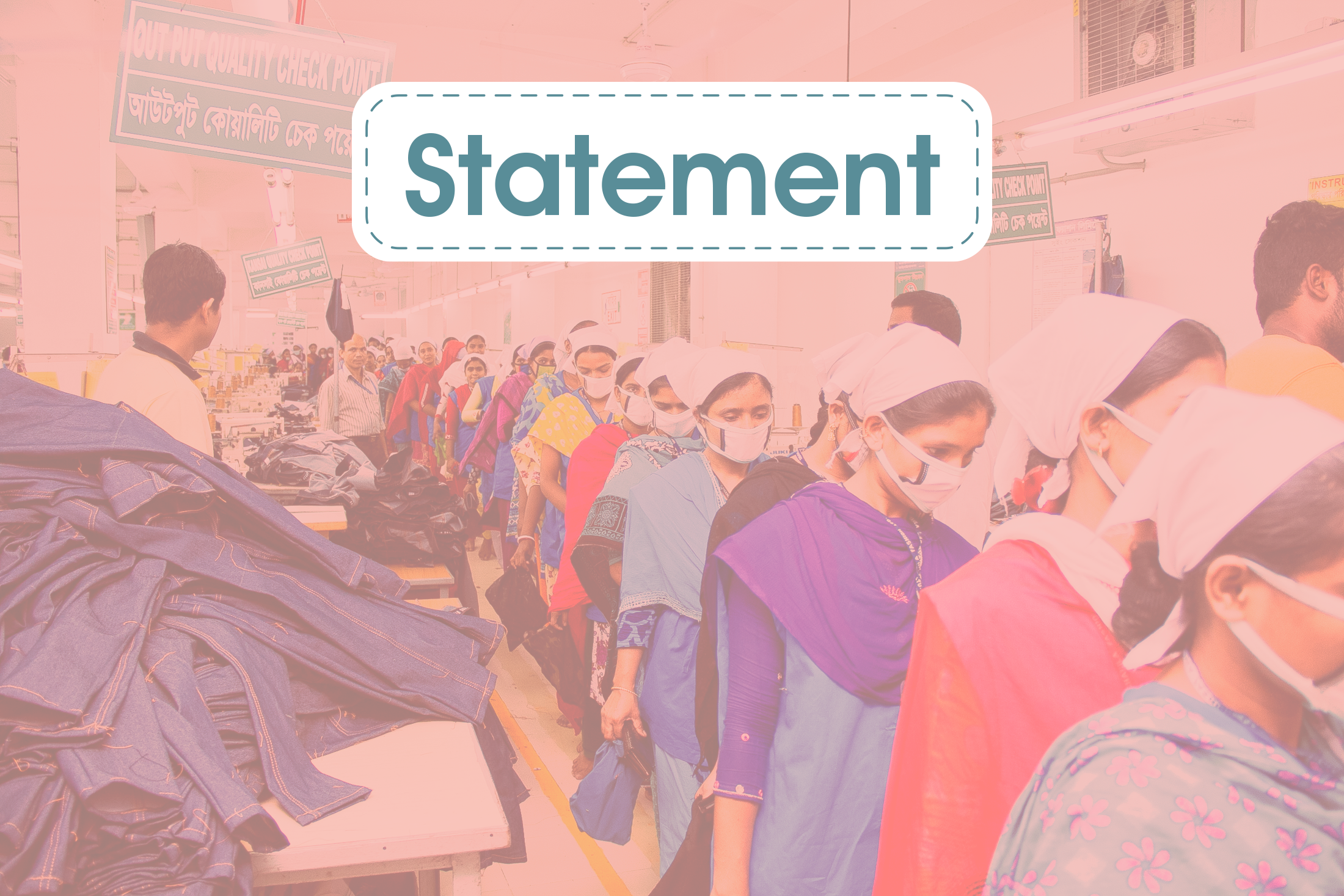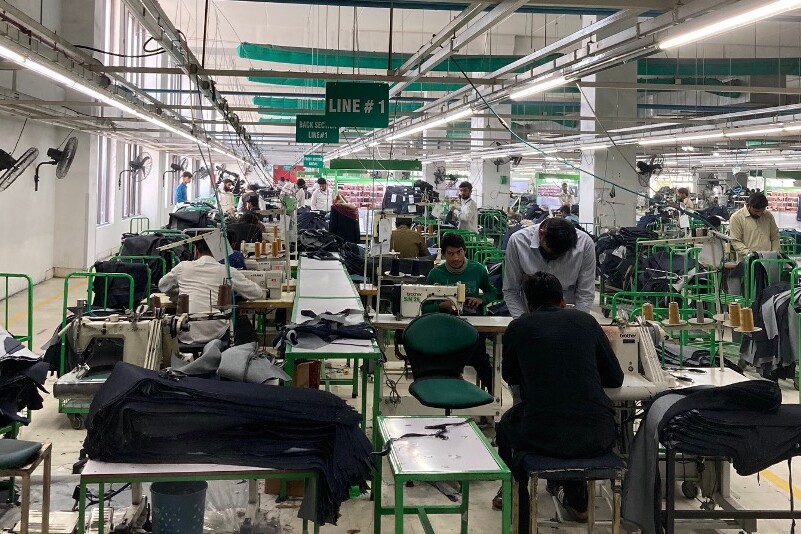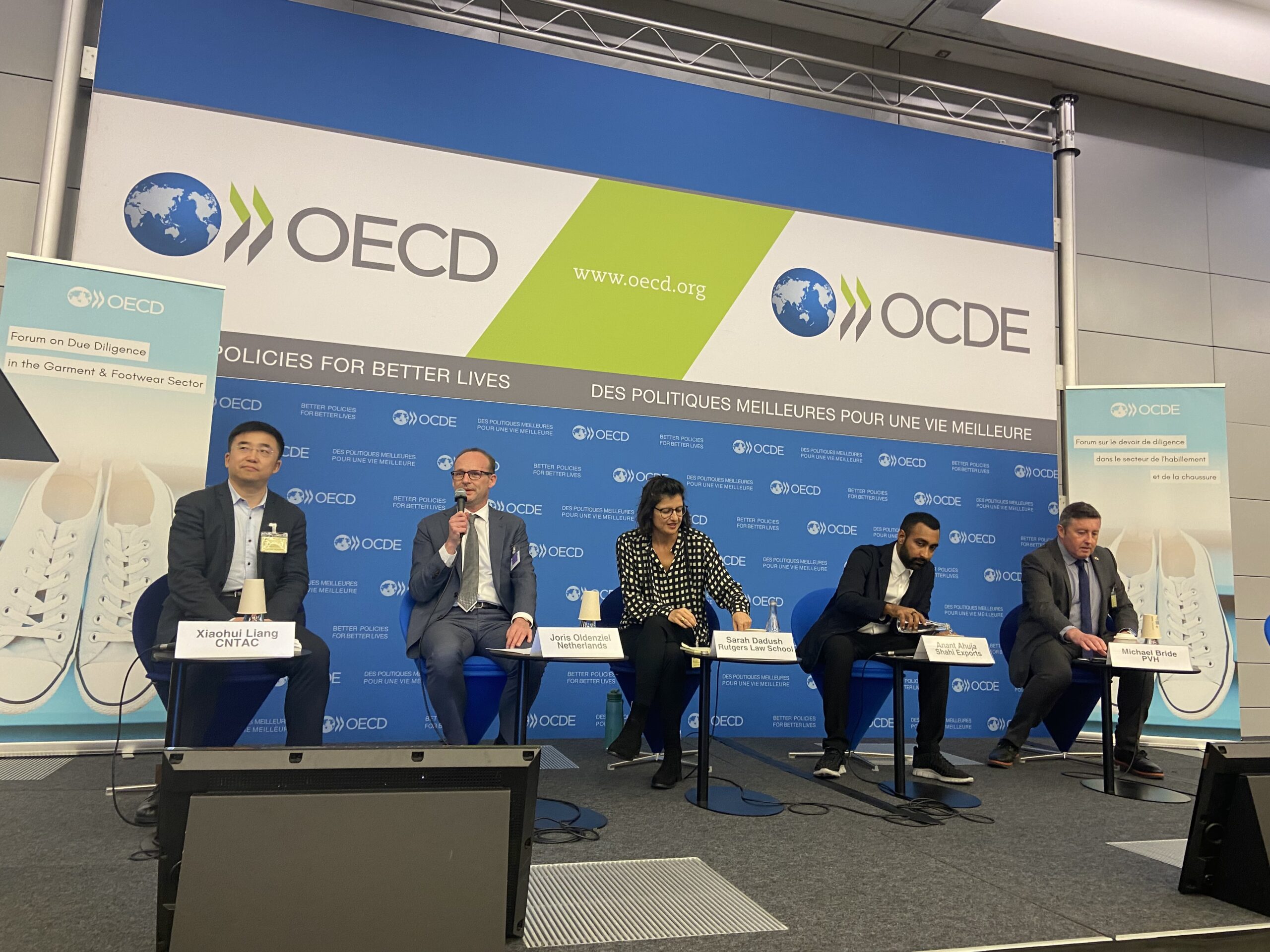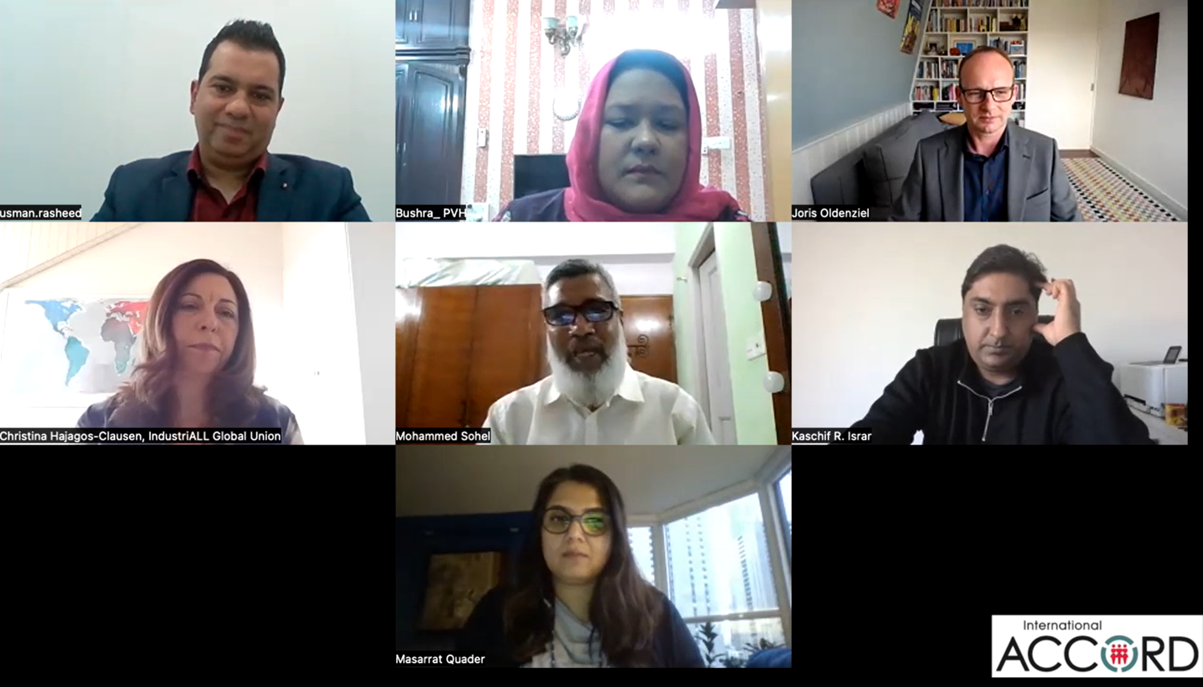The evolution of brand-union collaboration under the Accord
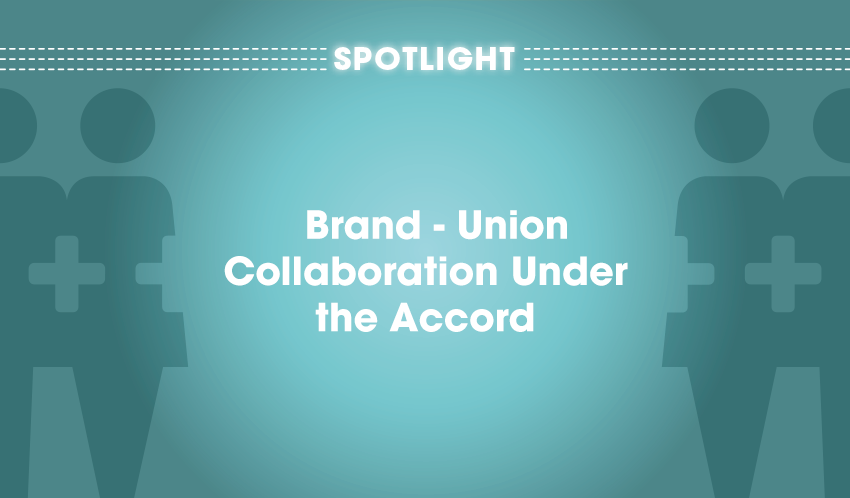
2023 marks 10 years since the first Accord Agreement was signed. To recognise this important milestone, we shine the spotlight on reflections from various Accord stakeholders on the progress, challenges, and way ahead on enhancing worker health and safety within the textile and garment industry. The views expressed in this post are of the interviewees and may not reflect those of the Accord Secretariat.
In conversation with:

Felicity Tapsell, BESTSELLER
Felicity is the Head of Responsible Sourcing at BESTSELLER. She has been a brand representative on the Accord Steering Committee member since May 2021 and serves on the Board of Directors of the RMG Sustainability Council (RSC).

Christina Hajagos-Clausen, IndustriALL
Christina is IndustriALL’s Director for the Textile, Garment, Shoe and Leather Sector. She has been a Steering Committee member since October 2015 and serves on special Working Groups related to factory remediation and Human Rights Due Diligence.
Share
The Accord is a legally binding agreement between over 200 brands and two global unions, UNI and IndustriALL who have jointly made significant strides in worker health and safety in the textile and garment industry over the past decade. The shared responsibility and joint efforts of brands and trade unions have fostered a culture of transparency, accountability, and continuous improvement in worker safety. In this post, two of the Accord’s longstanding Steering Committee members, BESTSELLER and IndustriALL, discuss the nature, impact, and way forward for collaboration between brands and unions.
What has changed about the nature of collaboration between brands and unions since the Accord?
Felicity: The Accord has been a groundbreaking initiative that created a platform for collaboration between brands and unions to work together towards the common goal of improving workplace safety. One of the main changes since the start of the Accord, is that there is now a greater understanding of the importance of worker empowerment and engagement in the garment supply chain. As an industry, brands have realised that working with NGO’s, relevant stakeholders, trade unions and other worker representatives is essential to creating responsibly managed, safer, and more ethical supply chains. As a result, many brands have started to incorporate worker engagement into their due diligence processes, and I think today, there is a much stronger relationship between brands and these stakeholders.
Christina: Over the past 10 years the collaboration between the brands and trade unions in the Accord has matured through our continued social dialogue, joint governance, and the three rounds of negotiations for renewed Accord agreements in 2013, 2018, and 2021. I would say that in the beginning there was a lack of understanding from the brands about the role of trade unions in the supply chain. This was a challenge that needed to be overcome to develop true social dialogue. Today, the relationship has developed into true supply chain industrial relations.
What is the tangible impact of the change in collaboration?
Felicity: In our supply chain specifically, we have seen tangible improvements in worker safety, such as the installation of fire alarms, fire exits, and the provision of personal protective equipment. We have also seen the development of a more diligent workplace safety culture on factory floors – where both workers and management are equipped with the knowledge and skills, they need to keep themselves safe.
At the brand level, the Accord has helped to raise the bar for responsible sourcing practices in terms of fire, electrical and structural safety in the garment industry. Brands are now expected to take a more active role in ensuring that their suppliers are meeting international labor standards, and there is greater pressure on brands to be transparent about their supply chains, promoting greater accountability and responsible practices throughout the industry.
Christina:The development of a stronger joint monitoring system to ensure that signatory brands enable the factories to remediate is an example of better collaboration. In 2017, the Steering Committee developed a program to identify brands that needed assistance in ensuring remediation. These brands were matched with brands that had solid systems in place. Together with the trade unions, the “buddy” brand, and brand in need of assistance, this program assisted many brands in assisting factories to reach compliance on outstanding issues.
What do you foresee for the future of collaboration between brands and unions?
Felicity: I believe that this collaboration will continue to grow in importance as more brands recognise the critical role that unions play in protecting workers’ rights and ensuring that suppliers are meeting international labor standards. Beyond due diligence, I hope that this model of collaboration at a national level will be used to address other industry issues. The Accord and RSC’s, tripartite structure, which incorporate the voice of international and national trade unions, industry, and fashion brands, has illustrated that significant progress can be achieved if we work collectively to create a more safe and ethically managed supply chain.
Collaboration between brands and unions will continue to be essential in driving industry-wide change. Continuing this joint effort, we can create a level playing field where all brands are held accountable for their actions, workers’ rights are respected, and the industry is supported.
Christina: I believe that the work that has taken place under the International Accord Article 40 has positioned the next round of negotiations this year to be able to expand the agreement to beyond health and safety. This article reads: ‘The parties to the Agreement will explore the expansion of the scope to address human rights due diligence. The SC shall create a Working Group to explore this possibility, with the understanding that brand participation in any such expansion will not be required under this agreement.’ I hope that the trade unions and brands can jointly expand the current worker grievance mechanism to cover other important worker rights issues.
Would you like to share your perspective on workplace safety in the textile and garment industry as an Accord stakeholder? Email us at media@internationalaccord.org
Related updates
May 15, 2023
Ten years after the first Accord was signed, the Accord Secretariat reflects on the progress in worker safety in the past decade and our vision for the future.
May 3, 2023
A total of 54 brands and retailers have thus far signed the Pakistan Accord for Health and Safety in the Textile and Garment Industry, with more expected to follow in the coming weeks.
April 24, 2023
The Accord commemorates 10 years since the Rana Plaza collapse by remembering those who perished, those who were injured, and those who continue living with the impacts of one of the worst workplace disasters in modern history.
February 18, 2023
The International Accord participated in the 2023 OECD Forum on Due Diligence in the Garment and Footwear Sector held online and offline (Paris, France) from 13-17 February 2023.
February 17, 2023
The International Accord organised a virtual side session on 13 February as a part of the OECD Forum on Due Diligence in the Garment and Footwear Sector to discuss the challenges & opportunities for the recently launched Pakistan Accord.
January 23, 2023
Accord Steering Committee member brands BESTSELLER, C&A, H&M, Inditex, Otto Group, and PVH Corp. have signed the Pakistan Accord.

